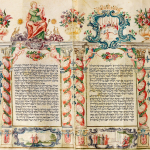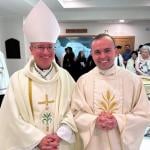Krakow, Poland, Jul 29, 2016 / 01:46 pm (CNA/EWTN News).- Speaking form the balcony of the bishop's palace in Krakow, Pope Francis told youth gathered below that the horror lived by prisoners in the Auschwitz extermination camp isn’t over, but still continues in those who suffer various forms of cruelty today. “I don't want to make you bitter, but I have to tell the truth. The cruelty of Auschwitz and Birkenau has not ended. Even today many people are tortured,” the Pope said July 29. Many prisoners, he said, “are tortured immediately, in order to make them talk. Today there are men and women in overcrowded prisons. They live like animals. This cruelty is there today.” He spoke at the close of his second full day in Poland, where he is spending July 27-31 for World Youth Day. He’s appearing on the balcony of the archbishop’s palace each night after he returns in order to address the crowd of youth gathered below. St. John Paul II began the tradition by speaking to youth from the balcony each time he visited his homeland as Pope. It was continued by Benedict XVI when he visited Poland in 2006, and is now Francis is following in the steps of his predecessors. Earlier in the morning Francis went to the Auschwitz and Birkenau extermination camps, where an estimated 1.5 million people lost their lives during the Nazi occupation. He later stopped by a children’s hospital to visit with the young patients and give them his blessing. After leaving the hospital, Pope Francis traveled to Krakow’s Blonia Park, where the youth participating in WYD performed a live reenactment of the Stations of the Cross. In his speech to youth at the balcony window, Pope Francis noted how they are closed the day uniting to the suffering Jesus. However, Jesus didn’t just suffer 2,000 years ago, but “he suffers today,” the Pope said. There are many people who suffer, including “the sick the homeless, the hungry, those who are doubtful in life, who don't feel happiness or salvation, or who feel the weight of their own sin,” he said, noting that Jesus also suffers in the sick children he visited at the hospital earlier in the day. “Jesus also suffers there, in many children...and that question always comes to mind: why do children suffer? There are no answers for these things.” Francis then reflected on his visit to Auschwitz and Birkenau, where there was so much pain and “cruelty,” asking “is it possible that us men, created in God's image, are capable of doing these things?” The same cruelty exists today, he said, explaining that this can be seen wherever there is war. “In many places in the world, where there is war the same thing happens,” he said. However, Francis also noted that Jesus chose to come into this reality, and to carry the weight of this cruelty on his shoulders. He also asks us to pray, the Pope said, offering his prayers for “all of the Jesus' there are in the world: the sick, the hungry, the thirsty, those in doubt, those who are alone, who feel the weight of many doubts and wounds.” These people, he said, “suffer a lot,” and asked the youth to also pray for the many sick children in the world, “who carry the cross as a child,” and for all men and women “who today are tortured in many countries in the world, for the prisoners who are piled up as if they are animals.” Jesus took all of this upon himself, including our sin, Pope Francis said. He stressed the fact that we’re all sinners who carry the weight of our sins, and jestingly told the youth that if they don’t feel like a sinner, to raise their hand. “We are all sinners, but Jesus loves us. And when there are tears, the child looks for their mother,” he said, and led the youth in praying a Hail Mary, each in their own language, before giving his blessing and wishing them a good night. Read more
















